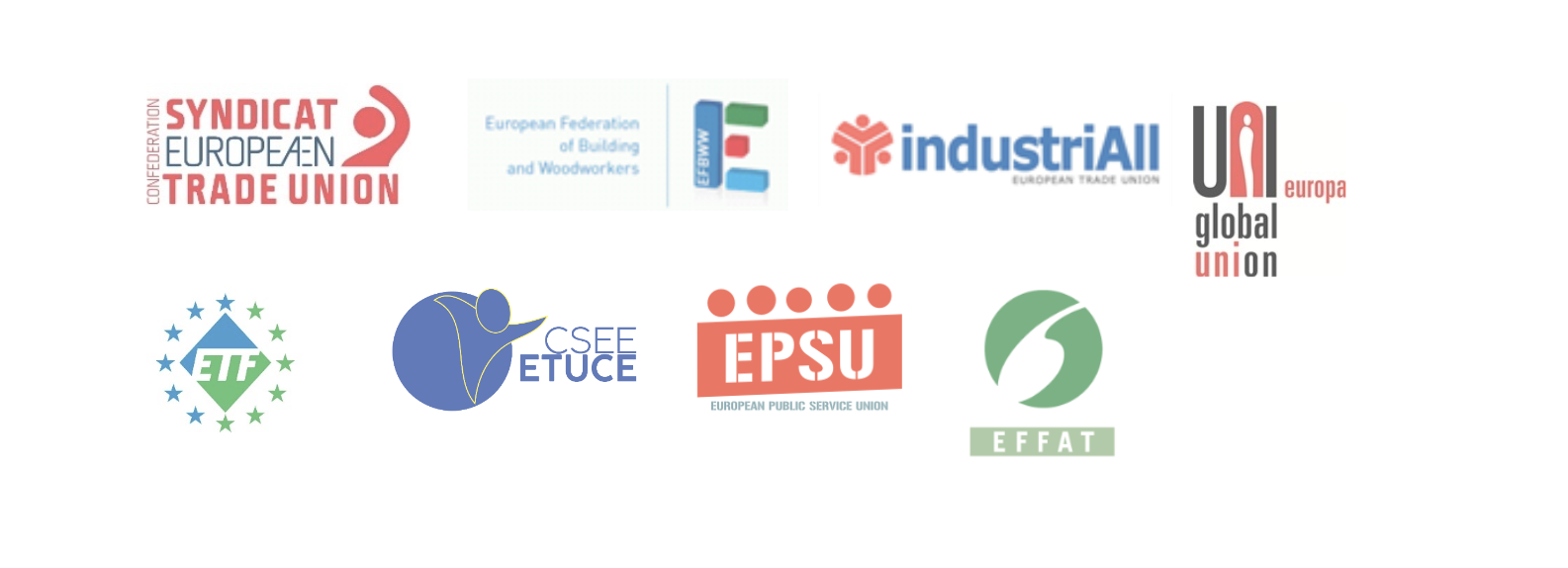Concerns Over EU Talent Pool Proposal: A Call for Protection of Migrant Workers’ Rights
Published:
Dear ….,
The European Trade Union Confederations[1] and the European Trade Union Confederation call on the Belgian Presidency and the Council to refrain from concluding a general approach on the European Commission EU Talent Pool proposal.
We would like to reiterate our support for the access of migrant workers to the EU labour market, based on full respect for labour, trade union and social rights and on the same working conditions applied to EU nationals as well as access to public services and social protection.
The proposal completely ignores that many of the envisaged “shortage occupations” belong to labour-intensive and fraud-sensitive industries, such as construction, food, agriculture, hospitality and transport. These sectors are heavily reliant on the work of mobile and migrant workers who often fall victim to discrimination and labour exploitation within exploitative business models that rely heavily on abusive subcontracting practices and unregulated labour intermediation.[2]
The solution to tackle labour shortages lies primarily in improving pay and working conditions for all workers including migrant workers residing in the EU.
Our call to you is prompted precisely by the fact that the Talent Pool proposal fails to provide such protective guarantees against exploitation by unscrupulous employers.
We encounter migrant workers working in food delivery, road freight transport, construction, care and domestic work, hotels and restaurants, health and social care, and increasingly industrial manufacturing sectors. They are undervalued, underpaid and unprotected. Many are or have become undocumented with even fewer rights and less protection. Many had paid their recruiters to get jobs in the EU and once here, they live in substandard accommodation, their passports are often retained by their employers or recruiters, and their wages are not paid on time, if at all.[3]
The proposed Talent Pool will not curb the current level of exploitation of migrant workers, it will fuel more obscure recruiters, placing in jobs whose quality is completely out of the Pool’s sphere of interest.
To this end, we would like to draw to your attention the following concerns:
- The Talent Pool proposal goes beyond a “matching tool”. It defines employers as ‘any natural person, any legal entity, private employment agencies, temporary work agencies and labour market intermediaries’ and allows them to recruit migrant workers, but sets no conditions for recruiters’ good repute, no screening procedures, no exclusion from the Pool in case of misconduct.
- The Talent Pool proposal makes subcontracting chains more toxic by fitting more labour recruitment intermediaries in, instead of regulating them. Indeed, with the above definition the link between employer and worker will be weaker. The longer the subcontracting chain, the harder to detect infringements of labour rights, and apply sanctions. This is particularly problematic in the context of temporary work agencies and other labour intermediaries as well as cross-border labour mobility. Recruited workers should be directly employed as a standard, which would offer stability for the workers and ensure clearer accountability for participating employers.
- The so-called ‘joining on a voluntary basis’ is no safeguard, all Member States will be impacted, whether they join the Talent Pool or not. A considerable number of migrant workers currently work in one or more Member States other than the one of recruitment. Actually, many of these have never worked in the Member State where their employer or recruitment agency is based. The Talent Pool proposal has nothing in it to curb the expansion of bogus postings without any genuine connection to the habitual place of work or country of establishment.
- The Talent Pool proposal is premature. To guarantee fair, quality and non-discriminatory jobs to migrant workers, first and foremost the EU needs to, at least:
- Evaluate the effectiveness of its labour migration laws in terms of the level of protection they offer to migrant workers, and close the gaps.
- Ensure all workers, independently on their immigration status, can report violations of their labour rights without risking retaliation or deportation.
- Develop a common framework of migrant workers’ rights. Such a framework should set, amongst others, direct employment as a standard, limit subcontracting, regulate the role of labour intermediaries, facilitate access to trade unions, and bolster the number of labour inspections.
- Extend ELA’s mandate to give it full competence on migrant workforce, as a key effective way to tackle for instance bogus posting, for instance.
- Pay attention to the brain-drain consequences in migrant-origin countries not least in public health and social care in line with ILO ethical recruitment principles and guidelines.
- The Talent pool interferes with the autonomy of the sectoral social partners at the EU and national levels and ignores the role of social partners in some EU Member States in defining certain jobs as “shortage profiles”.
This ill-thought proposal will require EUR 127 million to set up and run the Talent Pool. There are far better ways to use this money; supporting access to adequate information and advice[4], and investing in enforcement to prevent precarious employment and tackle labour exploitation, fraud and social dumping, would be only some of the many priorities in this direction.
We remain at your disposal for any further clarification.
Yours sincerely,
[1] ETF, EFBWW, EFFAT, EPSU, ETUCE, IndustriALL, UNI Europa
[2] ELA Strategic Analysis (2023), Construction sector: Issues in information provision, enforcement of labour mobility law, social security coordination regulations, and cooperation between Member States
[3] See FNV report Widespread Exploitation In The EU Road Transport Industry: The Case of Central Asian Truck Drivers, December 2023.
[4] Trade union structures to support migrant workers across Europe should be supported by EU funding. Already existing European trade union networks such as the UnionMigrantNet should be considered.